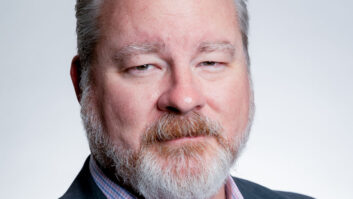You may think this a stretch, but an article in the March 23 edition of The Economist put me in mind of the CE industry.
It was titled “The New Rome Meets the New Barbarians,” and was written by Joseph Nye, the dean of Harvard’s Kennedy School of Government. Mr. Nye says that unlike the past, there are now three kinds of power that matter.
They are military, where the U.S. has no equal; economic, where we are very strong but affected by what other countries do; and what he refers to as “the realm of transnational relations that cross borders outside government control.” In other words, everything from free-flowing Internet communication to worldwide electronic bank transfers that transcend national borders.
He says that “power in a global information age is distributed among countries in a pattern that resembles a complex three-dimensional chess game,” with moves on one “board” affecting the “games” on the other two boards, and vice versa. In the end, who wins is not determined by what happens on any one board but rather what happens on all three.
If you look at CE distribution in this country, we arguably have two “super powers” in Best Buy and Circuit City. There are also a number of regional superpowers, and countless independents ranging from single to multiple store operations, each demonstrating various levels of economic performance and influence in the markets they serve.
Given the size of Best Buy and Circuit City, it would be easy to say that as their fortunes go, so goes the industry, but I don’t believe that to be true. In fact, I think that in many respects smaller retailers impact what Best Buy and Circuit City will do, if not immediately than ultimately.
To continue the three-tier chessboard analogy, Best Buy and Circuit City, playing on the first chessboard, most approximate the military might of the U.S. in terms of their buying power. That’s what makes them the market forces that they are for so much of what is sold in the CE industry.
But most of their sell-through is in self-defined purchases of lower priced products, and is almost totally exclusive of the high end product and systems that are sold by specialists. Where the specialists dwell is on the second-level chessboard. They talk to consumers about products and technology that are generally not available at either of the big box stores. And to the extent they reach consumers (all specialists collectively impact more consumers than they realize), they change the way the big stores will operate in the future.
The third-level “game” may be the most important of all in the future, and that is the custom installation specialists. Because they actually go into the home to sell product, they are truly in touch with the hearts and minds of consumers — a requirement for selling the profitable stuff that all retailers lust after.
As with Mr. Nye’s discussion of world politics, none of this happens in a vacuum. As big as they are, Best Buy and Circuit City must stay in touch with what their customers want. And while smaller, more personal regional stores and custom installers have a closer relationship with their customers, they cannot abuse this in the name of their own profit. The fortunes of all CE retailers are inter-dependent on what the others do. And perhaps most important of all, each needs to do that which it is best at.
With due respect to both Best Buy and Circuit City, I don’t expect them to ever be as good at the custom install business as are those individuals or companies that have made that segment of the market their business, any more than I expect a small retailer to be as good as Best Buy and Circuit City at satisfying self-defined sales. And efforts to alter this natural order of things strike me as dangerous and ill advised.
An article in a recent edition of TWICE quoted a consultant advising a group of independent retailers to carry loss leader product to generate floor traffic. In other words, to emulate what has made the big box stores successful.
If — and it is an enormous if — you could do that, you would no longer be what constitutes a successful independent retailer. But more than likely you will at best generate additional floor traffic for product you sell at cost if not a loss, while doing very little for your core business. Those of you who are successful independent retailers know well why Best Buy and Circuit City are no threat to you, any more than you are a threat to them.













